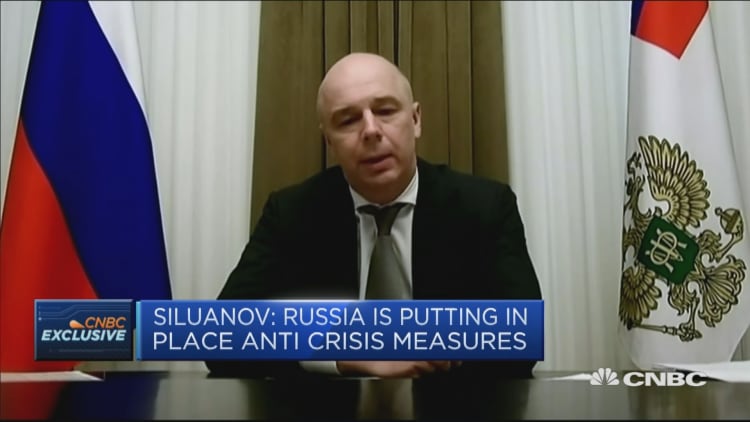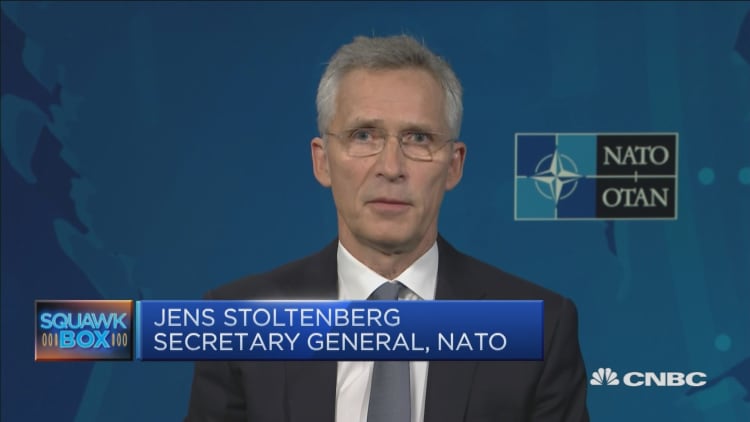A long-awaited U.K. intelligence report has called for immediate action to tackle Russian influence in the country and urged further assessment of its role in the 2016 Brexit referendum.
"Russia is a highly capable cyber actor, employing organised crime groups to supplement its cyber skills," the report published by the U.K.'s Intelligence and Security Committee Tuesday, said.
"Russia carries out malicious cyber activity in order to assert itself aggressively — for example, attempting to interfere in other countries' elections."
"It appears that Russia considers the U.K. one of its top Western intelligence targets," the report added. It noted that "there has been credible open source commentary suggesting that Russia undertook influence campaigns in relation to the Scottish independence referendum in 2014" and added that further investigations into purported interference in the 2016 EU referendum were needed.
The Kremlin has already denied the claims, stating earlier on Tuesday that the country has never interfered in another country's electoral process, according to Reuters.
The report's publication Tuesday comes after months of delay. It was completed back in March 2019 and sent to the Prime Minister Boris Johnson in October, but was delayed with wrangling over Brexit late last year, a snap general election in December and then the coronavirus pandemic. Critics of the government say it was trying to suppress its findings.

Critical of government
The report was critical of the present and previous government's handling of Russia, and Russian influence in the U.K., stating that not enough had been done to defend the U.K.'s democratic processes.
"Russian influence in the U.K. is the new normal," it stated. "Successive governments have welcomed the oligarchs and their money with open arms, providing them with a means of recycling illicit finance through the London 'laundromat', and connections at the highest levels with access to U.K. companies and political figures."
It also stated that the "U.K. is clearly a target for Russian disinformation. While the mechanics of our paper-based voting system are largely sound, we cannot be complacent about a hostile state taking deliberate action with the aim of influencing our democratic processes."
Yet, it added, "the defence of those democratic processes has appeared something of a 'hot potato', with no one organisation considering itself to be in the lead, or apparently willing to conduct an assessment of such interference," concluding that this "must change."
It also recommended that social media companies "must take action and remove covert hostile state material" and that any that those that don't should be named and shamed by the government.

Tensions
The government had already hinted at what was contained within the report last week when it accused "Russian actors" of seeking to interfere in the U.K.'s last general election in December.
"We believe we know with reasonable confidence that Russian actors were involved in trying to interfere with the 2019 election, principally through trying to spread and amplify online illegally obtained, leaked documents relating to the U.S.-U.K. free trade negotiations," the U.K.'s Foreign Minister Dominic Raab said last week.
The documents on those trade talks were used by the opposition Labour Party in its 2019 election campaign to try to discredit the Conservative government. Labour said the documents showed the Conservatives would allow U.S. firms access to bid for business in the National Health Service as part of any future trade deal.
Russia denied the allegations, with its ambassador to the U.K. telling the BBC in an interview at the weekend that "we do not interfere at all. We do not see any point in interference because for us, whether it will be (the) Conservative Party or Labour's party at the head of this country, we will try to settle relations and to establish better relations than now."
The report comes at a period of high tension between Russia and the West. Last Thursday, the U.S., U.K. and Canada accused Russia of trying to steal information and research on potential coronavirus vaccines in development from academic and pharmaceutical bodies.
Russia denied the allegations with the Kremlin's spokesman Dmitry Peskov telling TASS news agency that "Russia has nothing to do with these attempts. We do not accept such accusations nor the latest groundless allegations of interference in 2019 elections."


